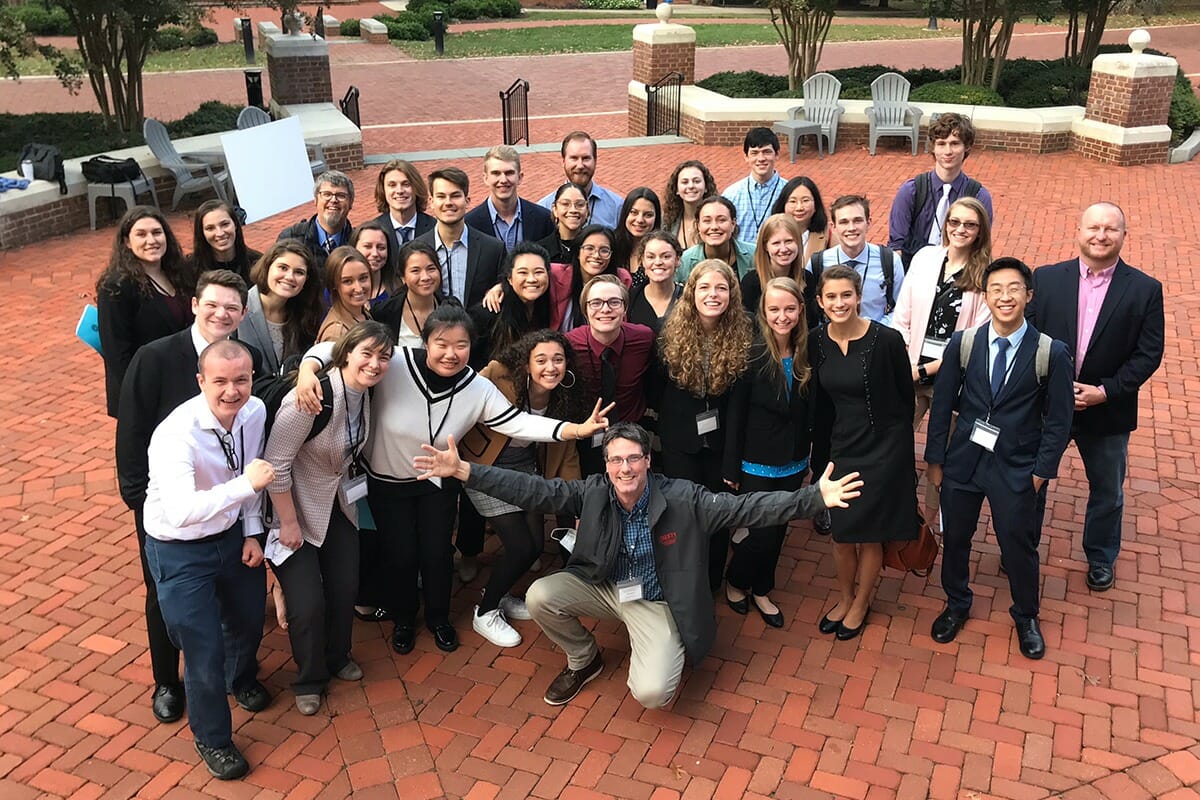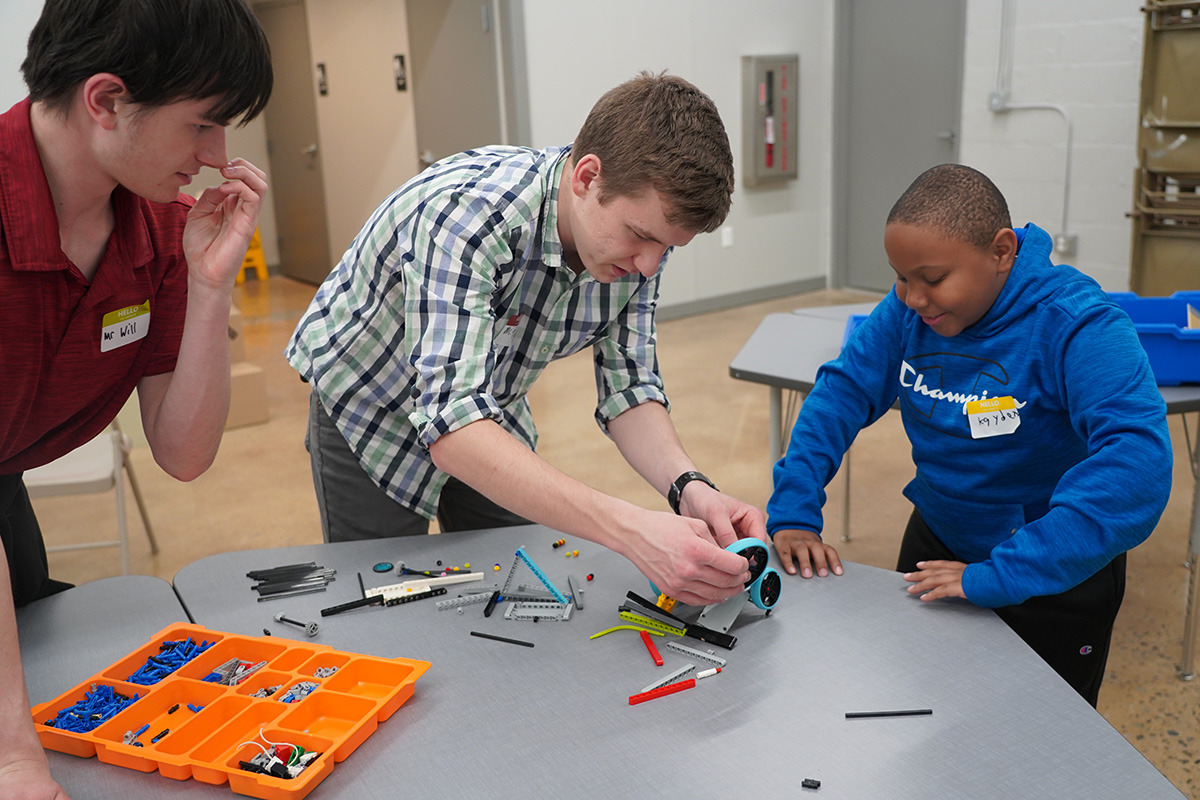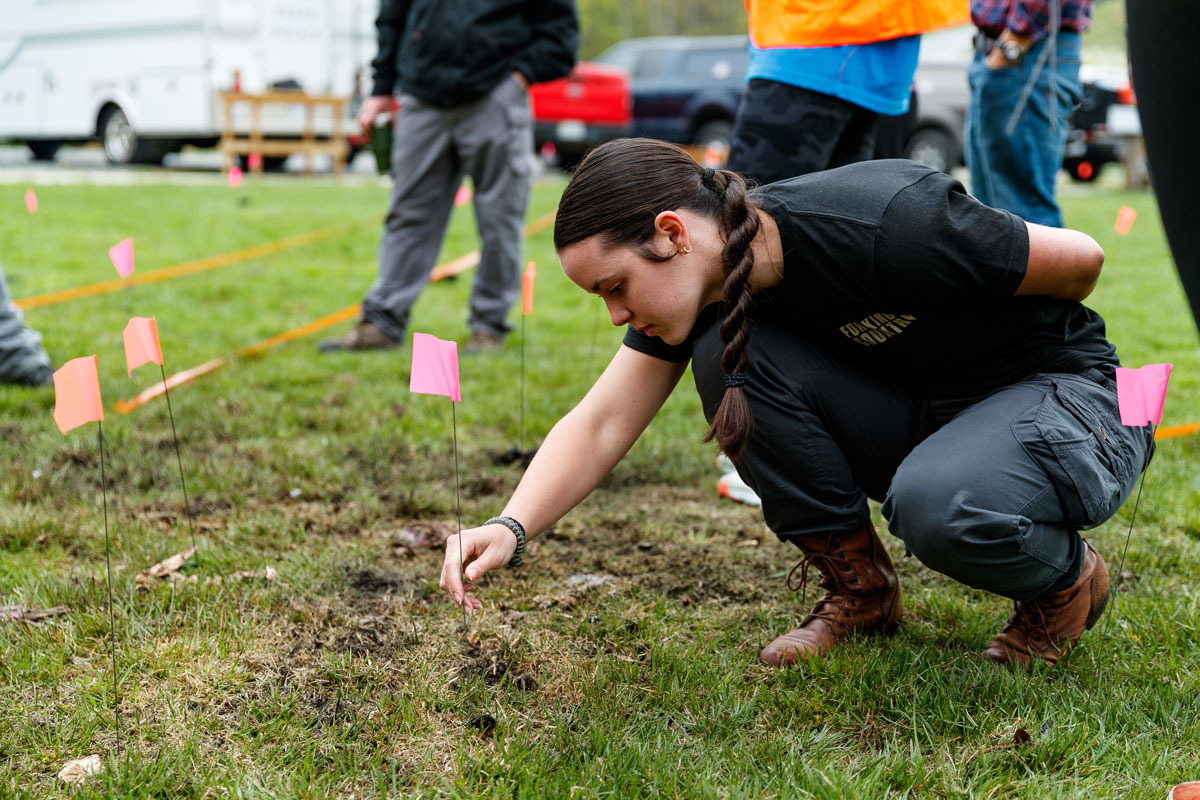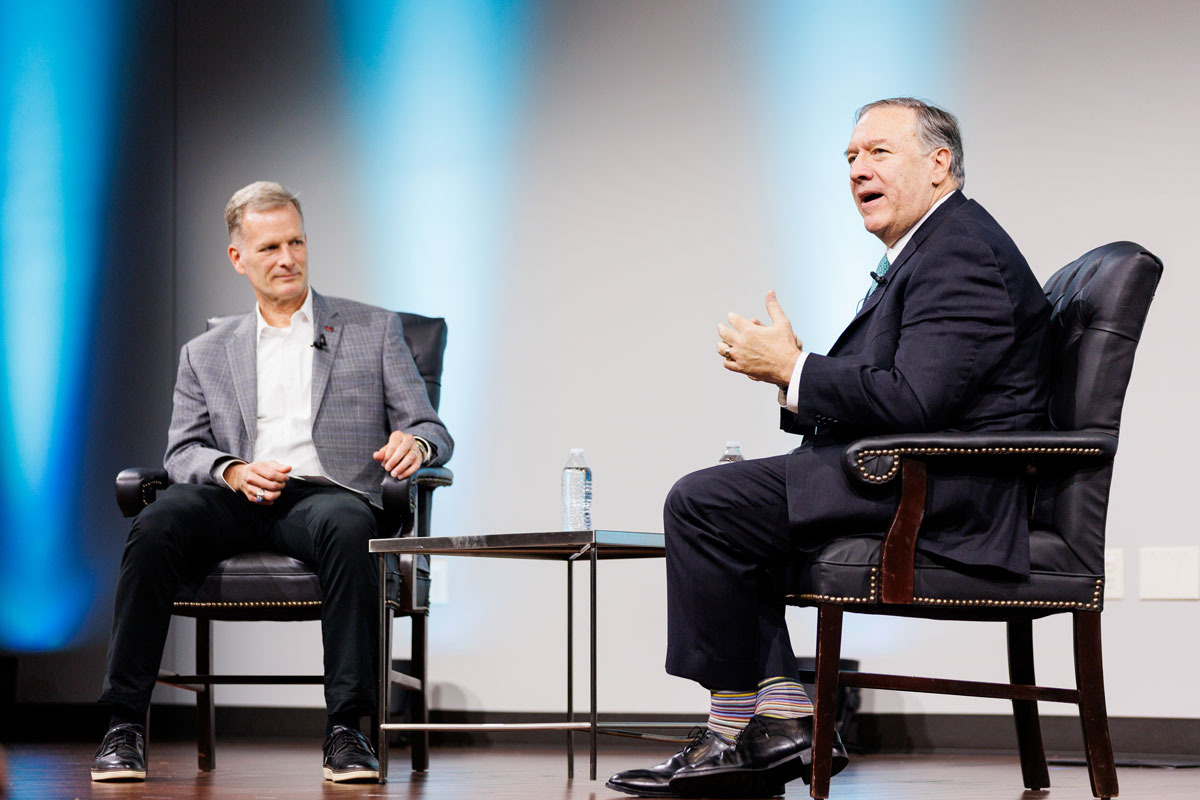Search News Archives
Filter News Articles
Additional Navigation
Liberty students win multiple research awards at Virginia Academy of Science meeting
December 7, 2021 : By Ryan Klinker - Office of Communications & Public Engagement

Students from Liberty University traveled to Hampden-Sydney College earlier this semester to participate in the Virginia Academy of Science (VAS) undergraduate research meeting, not only to showcase their most recent work but also to interact with other students from across the Commonwealth who are passionate about the sciences.
The meeting featured poster presentations by 56 students from 11 different schools — including the University of Virginia, Virginia Tech, and James Madison University — on diverse research topics. VAS presented two funded awards of $750 in each of the five sections: biochemistry, biology, engineering, environmental, and medical science. By the end of the day, Liberty had earned awards in four of the five categories (listed below).
VAS promotes the advancement of science in the Commonwealth by providing financial support for research projects and a platform for the dissemination of research results.
Dr. Gary Isaacs, a Liberty biology professor who served as president of VAS from 2019-20, was a research mentor for students who presented during this competition. (Liberty professor Dr. Michael Price is the new president). Isaacs attested to Liberty’s strong showing at the competition.
“Our students are strong because they’re smart, they’re strong because they’re trained well here, and they’re strong because of the manner in which they’re trained — working side by side with a professor on a weekly basis,” Isaacs said. “We don’t just sign them up and then they work in a lab alone, and I think that’s what makes the difference.”
Isaacs said that Liberty encourages students to get involved with research and VAS meetings early to get them comfortable being in a lab and sharing results. While the fall’s presentations were on specific topics that students may have started on this year, oftentimes the students took the topic from a project that has been ongoing for longer.
“Many times, our students win awards for saying what their results were, and a lot of the students are doing projects that they didn’t just start their senior year (like other schools),” he said. “They’ve usually been involved with VAS through their professors for multiple years. We’ve really tried to incorporate the fall undergraduate meeting and the spring meeting as part of our teaching experience here, that we invest in these students and train the students and use VAS as an output.”
Senior biomedical science (pre-med) student Mariko Locke worked with Isaacs to study where a genetic transcription factor Zinc Finger Protein 410 (ZFP410) binds to chromatin in brain tissue, the results of which could help clarify the molecular pathways involved in cognition and learning. Their work was recognized with one of the top awards in the biochemistry category. Given that Isaacs has conducted research with undergraduate students for over a decade and has recently published a cognition-based paper implicating ZFP410, Locke was able to join Isaacs in continuing the research effort.
“Dr. Isaacs is great. I’m very fortunate to be able to work with him and have him as my mentor,” Locke said. “I’ve been working with him for about two years, but we’ve been working on this specific project for the last four months or so.”
This fall, Locke attended a VAS meeting for the third time after going to observe in 2019 and presenting research in 2020 virtually due to COVID restrictions.
“It was really cool to be with other students and faculty who are also doing amazing things,” Locke said. “It’s just really interesting to see how broad science can be and what people choose to do with the same basic knowledge, how they can apply their knowledge in so many different ways.”
Yuqi “Maggie” Wang, a junior studying biochemistry and molecular biology who was a part of a three-student team that won in the biology category, said she was inexperienced and anxious when it came to research and lab work in her first couple years at Liberty. However, that changed this past summer as a result of the ASSURE program. Given its goal of presenting students from underrepresented demographics with the opportunity to grow more comfortable in a research environment, the ASSURE program allowed Wang to explore science and find her passion for it.
“The ASSURE program was a fascinating experience because that was my first opportunity to do research,” Wang said. “Before that, I was wondering whether I was good enough for science and at times didn’t know what I was doing in lab work. I got to see what I like and don’t like and see what I’m capable of, and it made me realize that I do love science and that I want to continue into graduate school. We got to go into the unknown and explore it together with a professor, and the project I started during ASSURE is what we presented at VAS.”
Her research and presentation involved the effect that bisphenol-C (BPC), a compound often found in plastic, can possibly have on the estrogen receptor gene, using zebrafish as the animal models. This comes from a research effort that has been ongoing in Liberty’s Biology & Chemistry Department for roughly three years.
“The judges really tried to challenge (us) to see if we really knew the whole logic behind our project, but they also encouraged us,” she said. “As a scientist, whether they’re challenging you or encouraging you, you can learn from that experience. In talking to the other students, we saw that we’re each not alone; we’re all nervous about the presentations, we’re all kind of exploring this together.”
The funds from the awards go toward supplies for the students’ continued work. Many of the projects Liberty’s students worked on are supported by grants from the Center for Research & Scholarship (CRS).
“We are proud of the research that our undergraduate students are accomplishing within the Department of Biology & Chemistry and are excited to support the efforts of their faculty and students,” said CRS associate director Darren Wu.
Being a Christian university among mostly secular institutions, Isaacs said Liberty’s students and faculty may have different views on certain scientific issues than their peers but they still showcase high-caliber work in the scientific field.
“It’s nice for us to know that people may disagree with you about some philosophical or religious things, but on the scientific aspects they have to praise you for your work,” he said. “We want to train people who are excellent in their field, excellent people, and excellent Christians, so that when the world may want to discount them, the world has a really hard time.”
“It’s great for the students to understand that they can be in the world but not of the world, and it really defines what being ‘in the world’ means, which is to be able to interact with the world’s professionals at their level,” he added.
Virginia Academy of Science Fall Undergraduate Research Winners and Honorable Mentions, Liberty University
- Biochemistry
- Award: Mariko Locke
- Honorable Mention: Hannah Finson; Joshua Kim, Bethany Fisler, and So Jung Kim
- Biology:
- Award: Yuqi Wang, Asia Eskaros and Pierce Knepley
- Honorable Mention: Isaac Dotson, Amelia Wickham, and Jessica Welty
- Engineering:
- Award: Isaac Liu
- Environmental:
- Award: Christina Hardin
- Honorable Mention: Kyra Todd and Taylor Salvigsen
- Medical Science:
- Honorable Mention: Hannah Davenport


